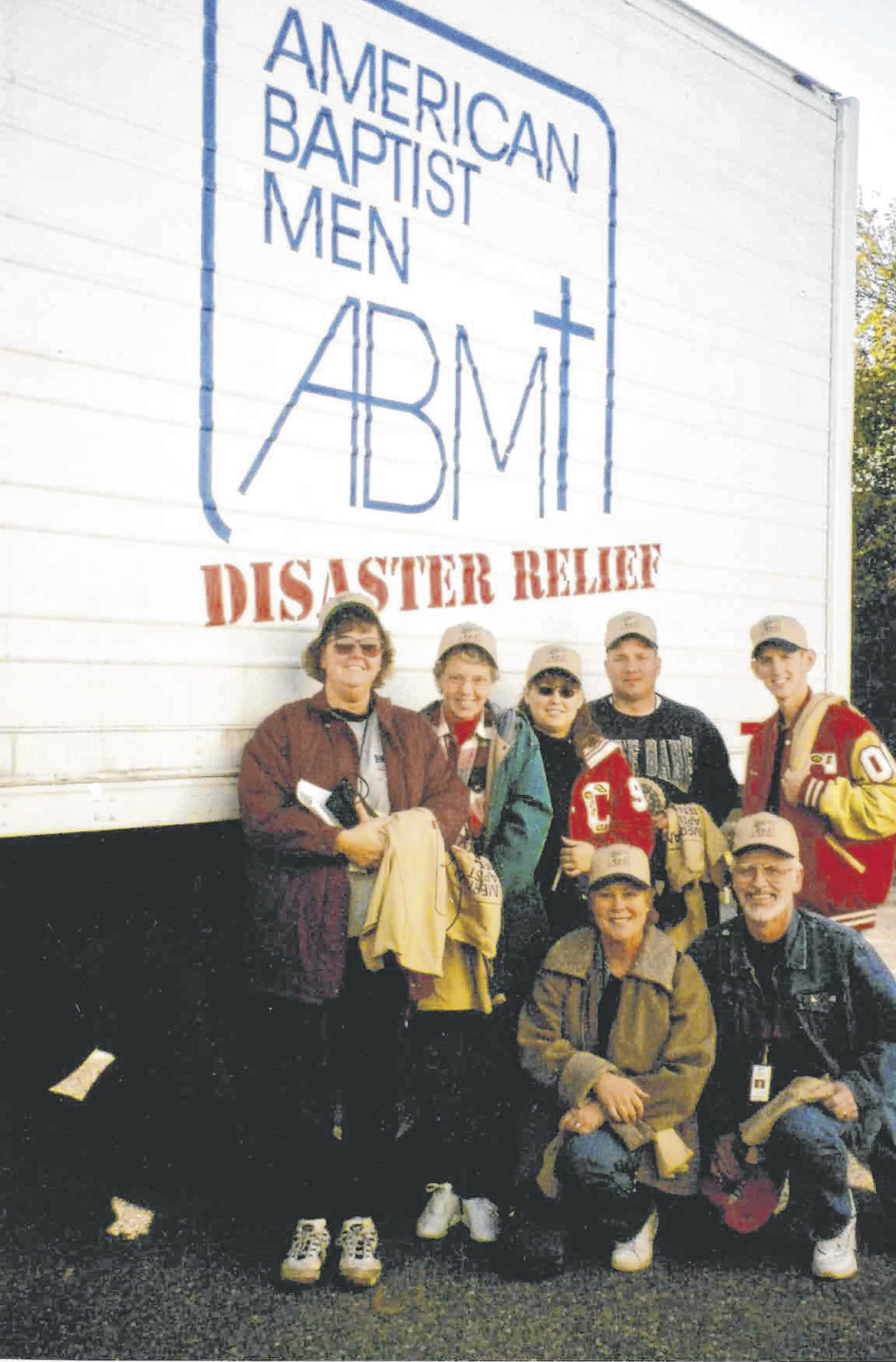
On the morning of the Sept. 11, 2001, terrorist attacks, Jan Engel was sitting at her office at Home Products International in Seymour.
There wasn’t a television in the office, but she and her co-workers were able to listen to the radio and pull up stories on the internet to know what was going on.
A couple of months later, Engel and six others from First Marion Baptist Church in Paris Crossing were near Ground Zero helping with cleanup efforts.
American Baptist Men Disaster Relief was working hand in hand with the American Red Cross, which was one of the first groups to arrive in New York City.
One of First Marion’s past ministers, Allen Abbott, worked in the American Baptist Home Mission Societies office in Valley Forge, Pennsylvania, and they reached out to the church to see who would be interested in helping.
Engel didn’t expect her first trip to New York City to be for this reason.
“I believe people are called to do this kind of stuff, and I feel blessed I was able to do it,” the Seymour resident said. “It was a wonderful experience, but it’s a sad experience that you had to do it. It’s just one of those things that you’re praying about it and God says, ‘This is what you should do.’ That’s what I did.”
Engel and her fellow church members left the morning of Nov. 10, 2001, and stayed that night in Valley Forge. They headed to New York City the next day and spent a week there. They stayed at Brooklyn Navy Yard, where men slept in cots on one side and women were on the other side.
“Every morning, we would get up and we would go to semitrailers and get our assignments, get breakfast at a breakfast tent and you could pack lunch, which we did,” Engel said. “Then we would take the subway to about nine or 10 blocks from Ground Zero and we would have to walk from there.”
The group worked in teams cleaning up two people’s apartments.
At one, a man had lived there.
“He met us there and then pretty much said, ‘Get rid of everything,’ and he left. He did not want to be there,” Engel said. “He worked in the World Trade Center, but he was not there that day (Sept. 11). He was sick, and he was not there. He was at home.”
Two women, Janet and Karlene, lived in the other apartment. Janet was in the bedroom when one of the planes hit the World Trade Center. Their front window overlooked what became known as Ground Zero.
After the attacks, people went through the building knocking on each apartment door to see if anyone was inside.
“She was having to crawl to get out, and she had nothing,” Engel said of Janet. “She said, ‘I had no purse. I had no money. I had nothing, literally nothing, when I went out,’ and there were X’s on the doors where they had checked apartments to know that there was nobody in them.”
Everything from small pieces of paper from the World Trade Center to large pieces of debris came into Janet and Karlene’s apartment.
Both women helped the group clean their apartment.
“She had very nice pictures on her wall, very pretty artwork, expensive artwork, and Sandra (Sweany, one of the volunteers) is very good at that kind of stuff, so she knew how to properly clean it,” Engel said. “We were very careful with her stuff. You wanted to understand that this is personal property, and you wanted to treat it with respect.”
Volunteers had strict protocol to follow, Engel said. If they found a body part, they had to leave the site and notify a certain person. When they finished cleaning each day, they had to take off their gloves and face mask, put them in a trash bag, close it up and put it in a dumpster.
“You would put bedding and stuff in a big trash bag, and then you had these big heavy-duty sweepers and it would suck out some of the dirt, and you would do that over and over and over again,” Engel said. “So much dirt and dust. Oh my gosh! The dust was unbelievable.”
Outside, Engel said she saw several large flatbed semis going through wash stations as they left Ground Zero.
“No matter what debris and stuff was on it, it got cleaned so it didn’t contaminate wherever it was taking it to,” she said.
A walk across a bridge one night stuck out to Engel. Halfway back toward the city, the smell in the air changed.
“When you were down there (near Ground Zero), you might not realize it so much because you had gotten used to it, but when you walked away and then you came back, you would really notice the smell of it,” she said.
On the other hand, Engel said she noticed how nice people were to each other in New York City after 9/11.
“I believe that 9/11 is being forgotten and that we aren’t remembering it and remembering what made our country come together,” she said. “Now, we see so much division in our country, and we need to remember that we don’t need another 9/11 to remind us. We need to be united. Even if we’re not in agreement with our political parties or whatever, as Americans, we have to stand united.”
At the end of a photo album Engel created from the mission trip in 2001 is a poem that serves as a reminder to always remember 9/11:
“We owe it to ourselves, to our country, to the cause of freedom and to each American who has suffered so deeply to always remember Sept. 11 in our hearts and do whatever we can to make a difference in this world.”
